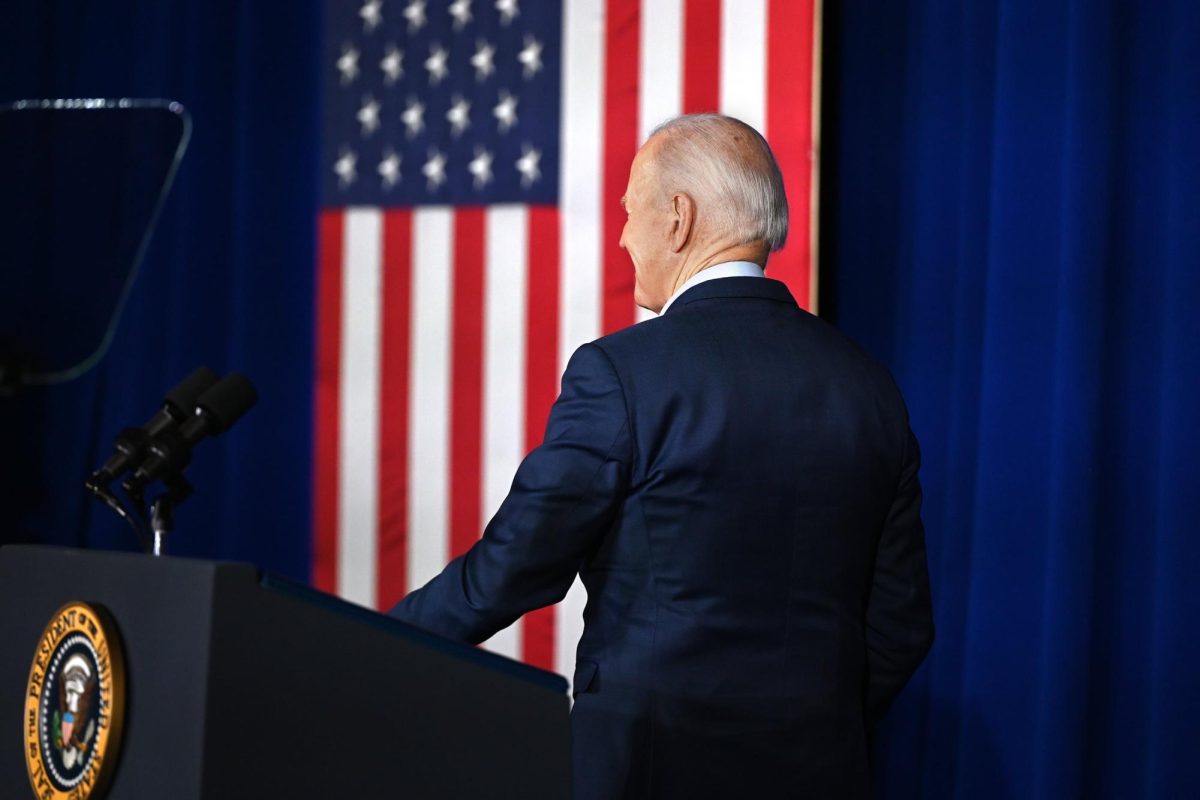I distinctly recall the initial thoughts that flowed through my head upon realizing that Joe Biden would be the Democratic nominee for president again in 2024.
While those thoughts consisted of mixed feelings like wondering how Biden could do four more years of the hardest job on the planet, or the fact that he technically was the only person who has beaten Trump, I had a bad feeling about the now murky path forward for the Democratic Party.
To combat these initial feelings within myself and other people corroborating how I felt was the existence of precedent. No incumbent president since Franklin Pierce in 1856 had ever lost their party’s nomination post the primaries. To me, naturally, it felt unlikely to happen again.
Today’s political landscape just proved once more how tumultuous it is, with Biden proving the word “unprecedented” useless by withdrawing from the race after calls from many Democrat elites and donors.
Initially saying “only the Lord Almighty” could convince him to withdraw from the race after his bad debate performance in June, Biden seemed to come out of nowhere with this announcement. In his post to X, he wrote, “It is in the best interest of my party and the country for me to stand down.” What the President doesn’t reference is the immense loss of support he suffered, and how that in itself puts the power of elitism in politics on full display.
Get The Daily Illini in your inbox!
According to an article by CNBC, information about a leaked call with 75 donors showed that only one of the 75 expressed Biden should stay in the race — the rest did not only elucidate their loss of support but also began lobbying high-ranking Democrat politicians to publicly call on Biden to withdraw from the race.
Subsequently, this effort seemingly began to work; a significant number of current and former Democratic politicians called for Biden to step down. Extreme pressure from the media also played a crucial role, with many organizations using their entire editorial boards to simply opine that Biden should withdraw. This, coupled with reported private pressure from even Barack Obama and Nancy Pelosi, initially appeared to have done the trick.
However, while pressure from politicians in Biden’s inner circle may have put him over the edge, donors are who really got the ball rolling and began the avalanche of pressure on the president.
Political elites have always existed in our political spheres, but the reason they haven’t been at the forefront of the political scene in other years and circumstances is that they have mostly been united within their parties.
Even just last year, Democrat elites had no reason to be divided. However, the post-debate issue of Biden’s viability finally cracked and divided the elite stronghold — and through that crack, the true influence and power that some elites have is now visible.
The evolution of Biden’s resistance to calls for him to step down only further proves the point that the gradual pressure was what got to him in the end. Remarkably, the attention seems to be on the aforementioned editorial boards of various publications and high-ranking Democrats already in office, as if their shared influence started it all.
But one needs to look no further than how — after weeks of low donor participation — the wealthiest donors of the Democratic party donated more than 50 million dollars to the party the day Biden stepped down. According to the New York Times, this was the biggest single day of donations since Ruth Bader Ginsburg died and an unambiguous sign of the Democrat elites’ desperate push for change.
If political elites, including wealthy donors and high-ranking Democrats, can directly dictate the withdrawal of an incumbent president from a reelection campaign, it may be time to question their influence on electoral outcomes.
Yes, the political landscape in our country is ever-changing. But voters and other parts of the system that nominate our government need to be aware and adapt to these shifts, as the elites are still in control of the most important political proceedings.
Their growing influence thus calls for an effective reevaluation of their role in American politics — especially their role in the upcoming election.
George is a senior in LAS.





